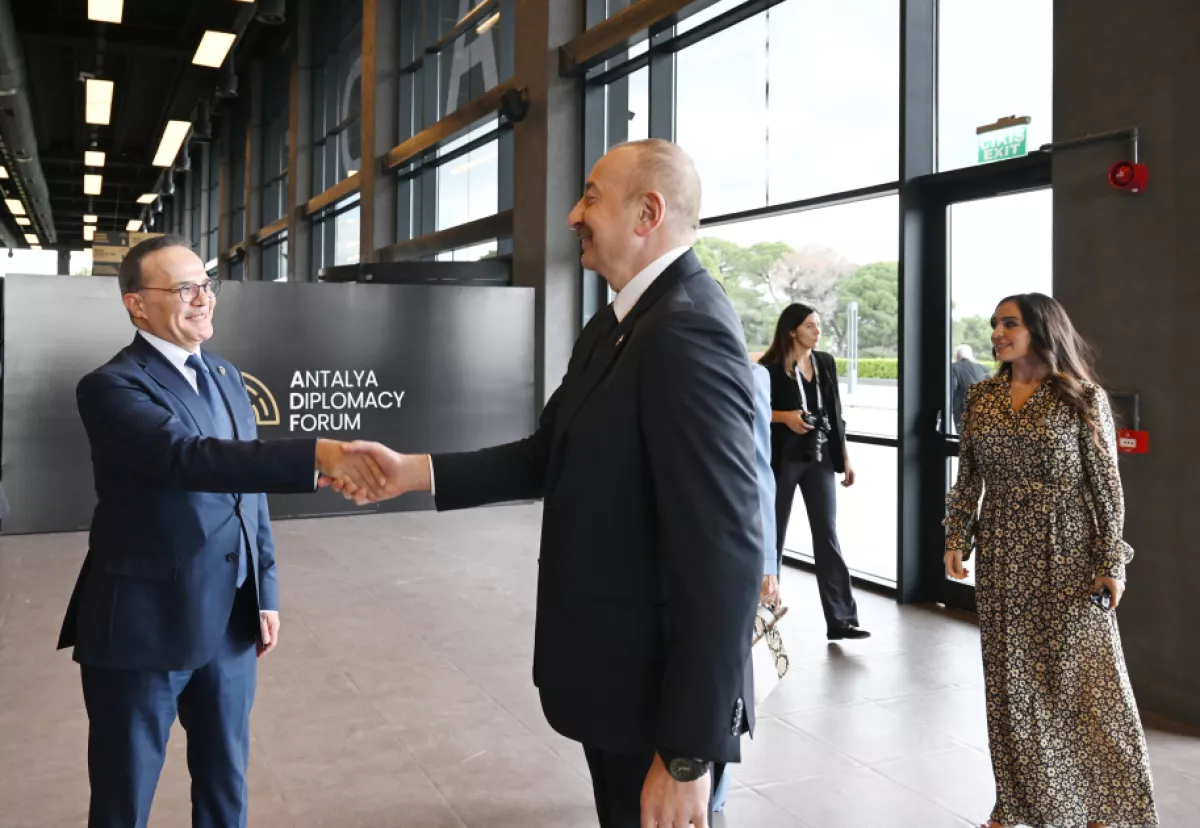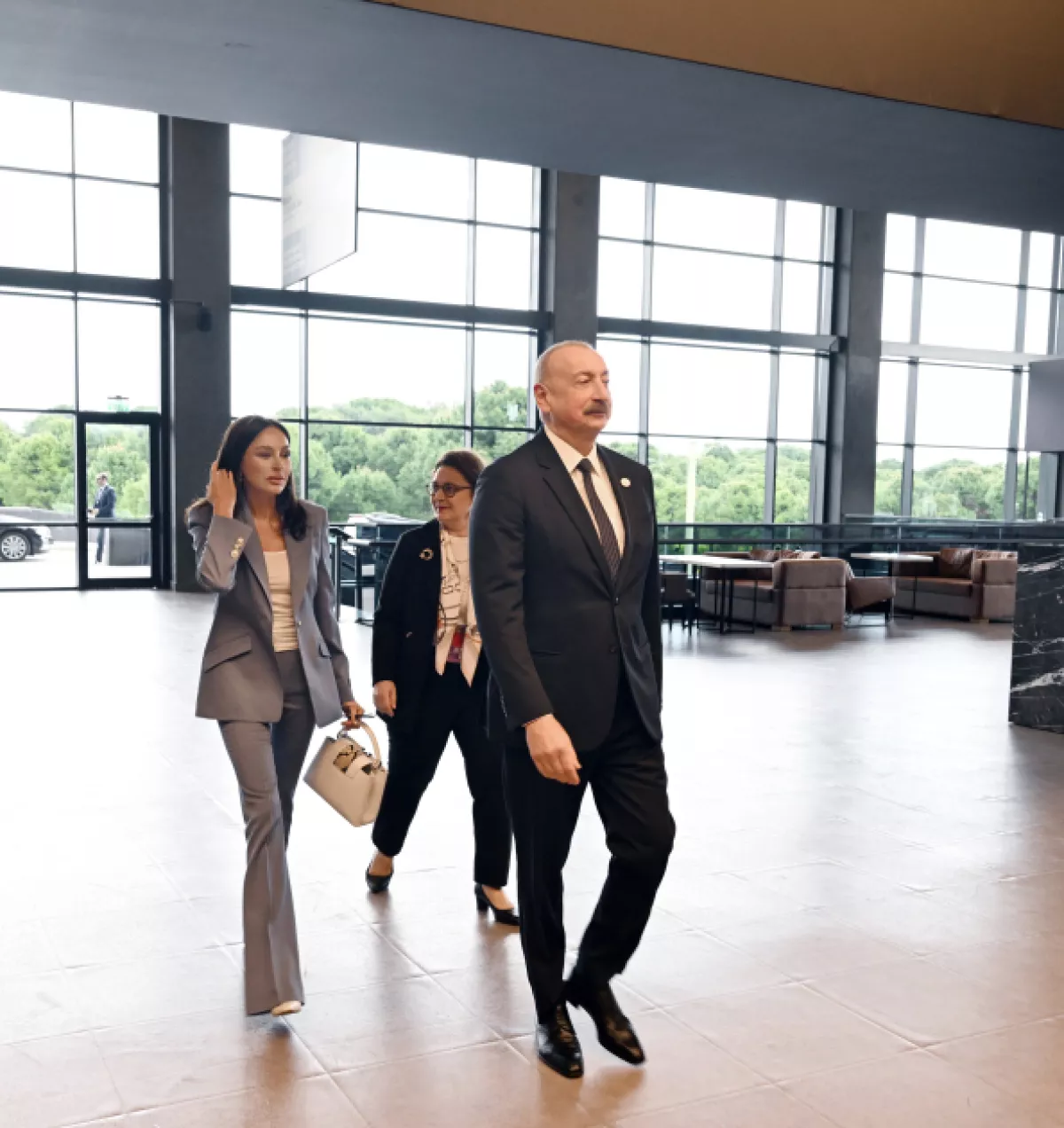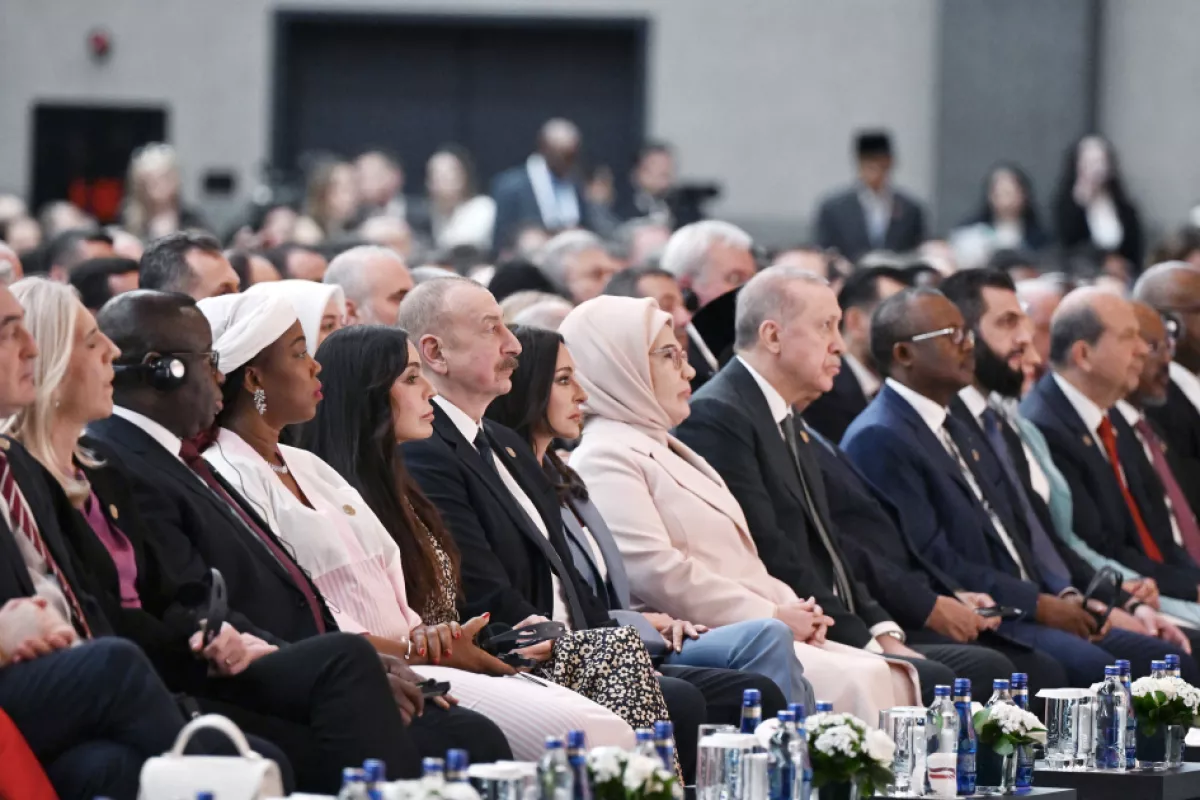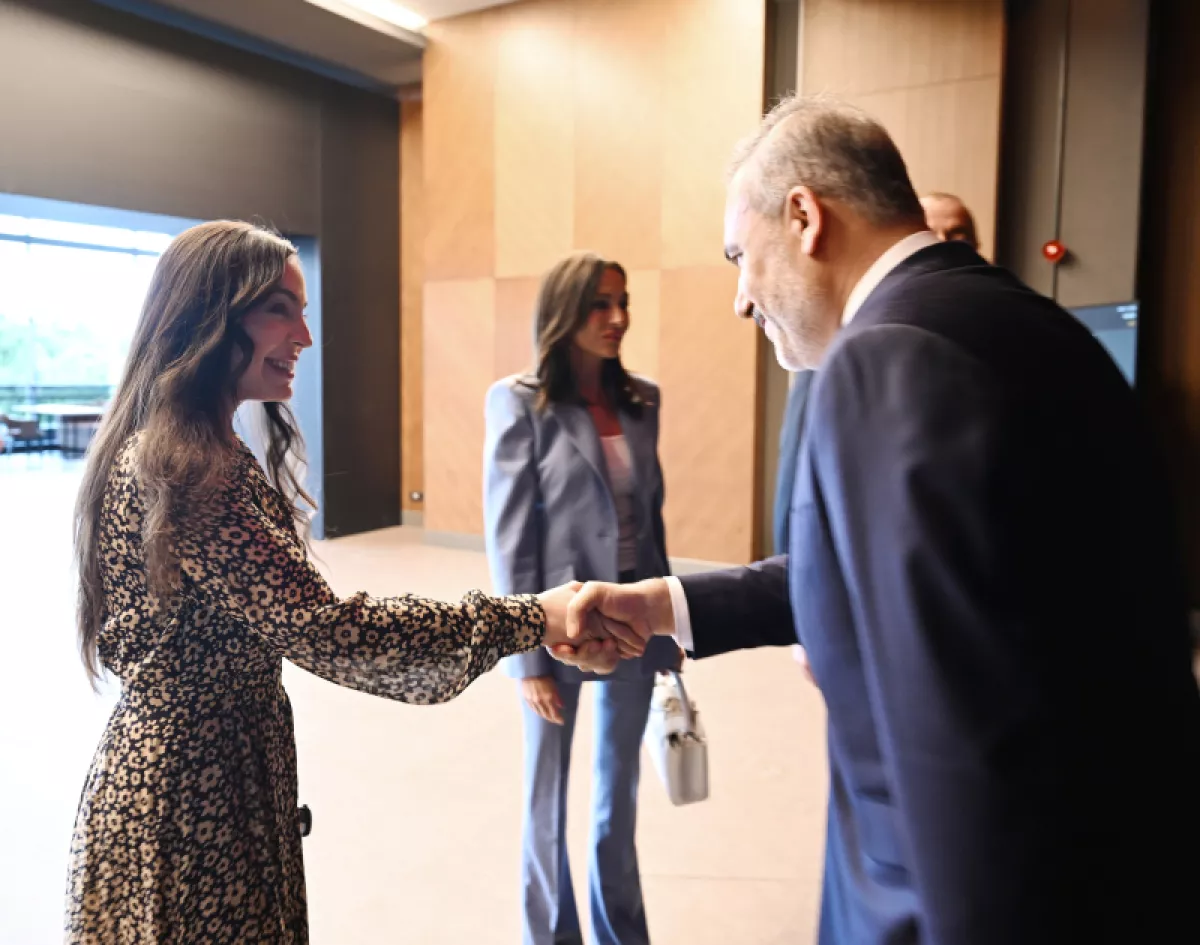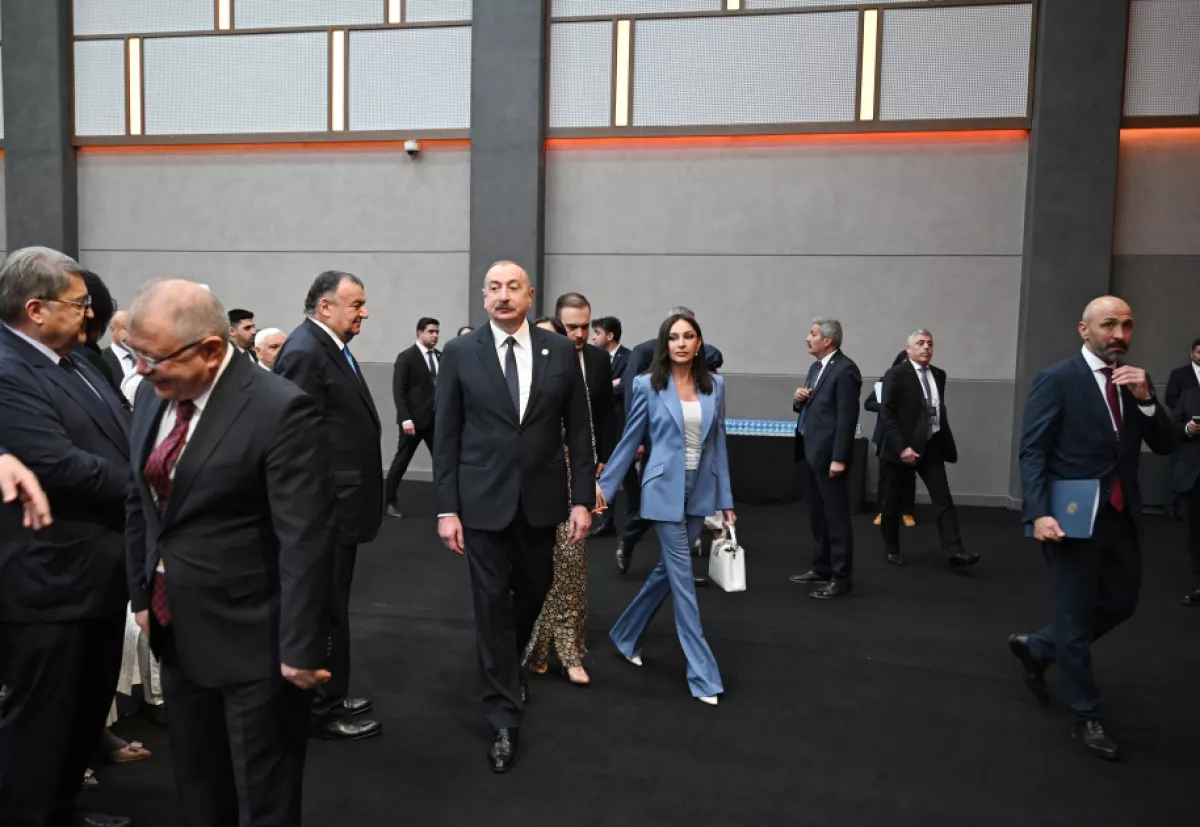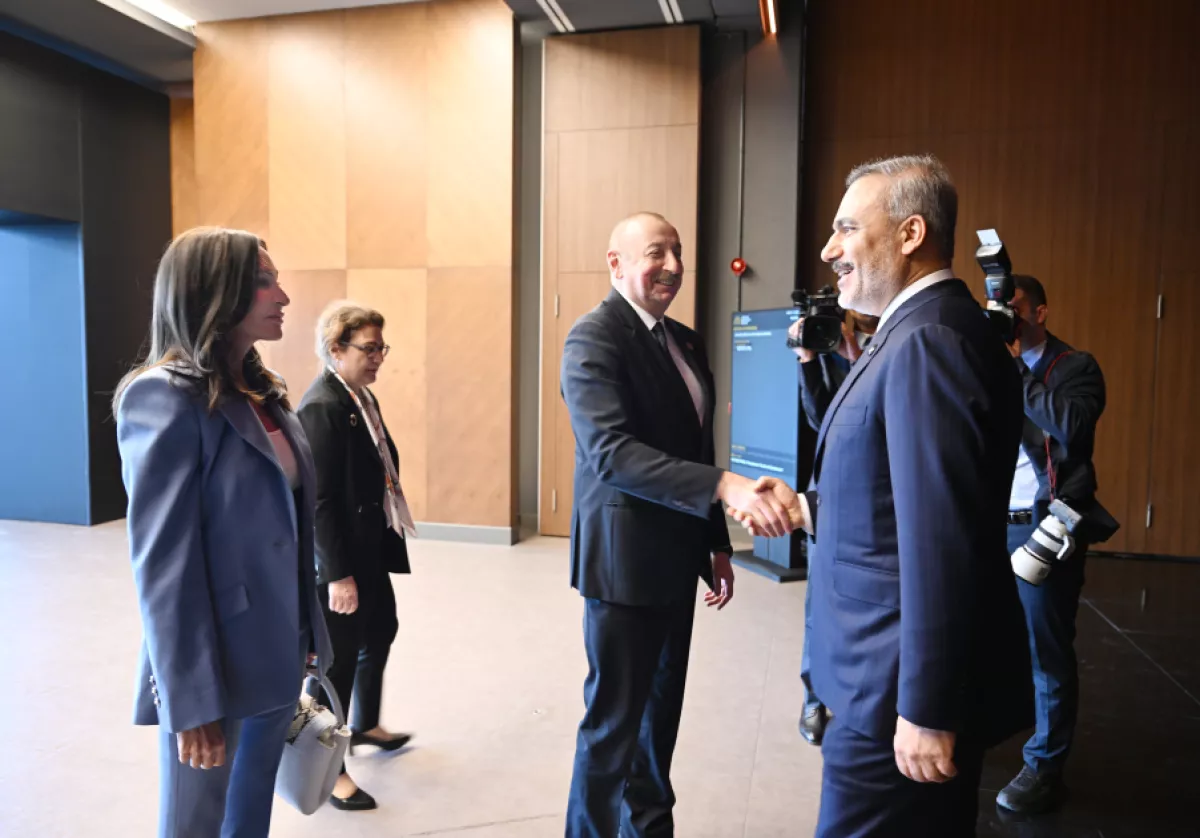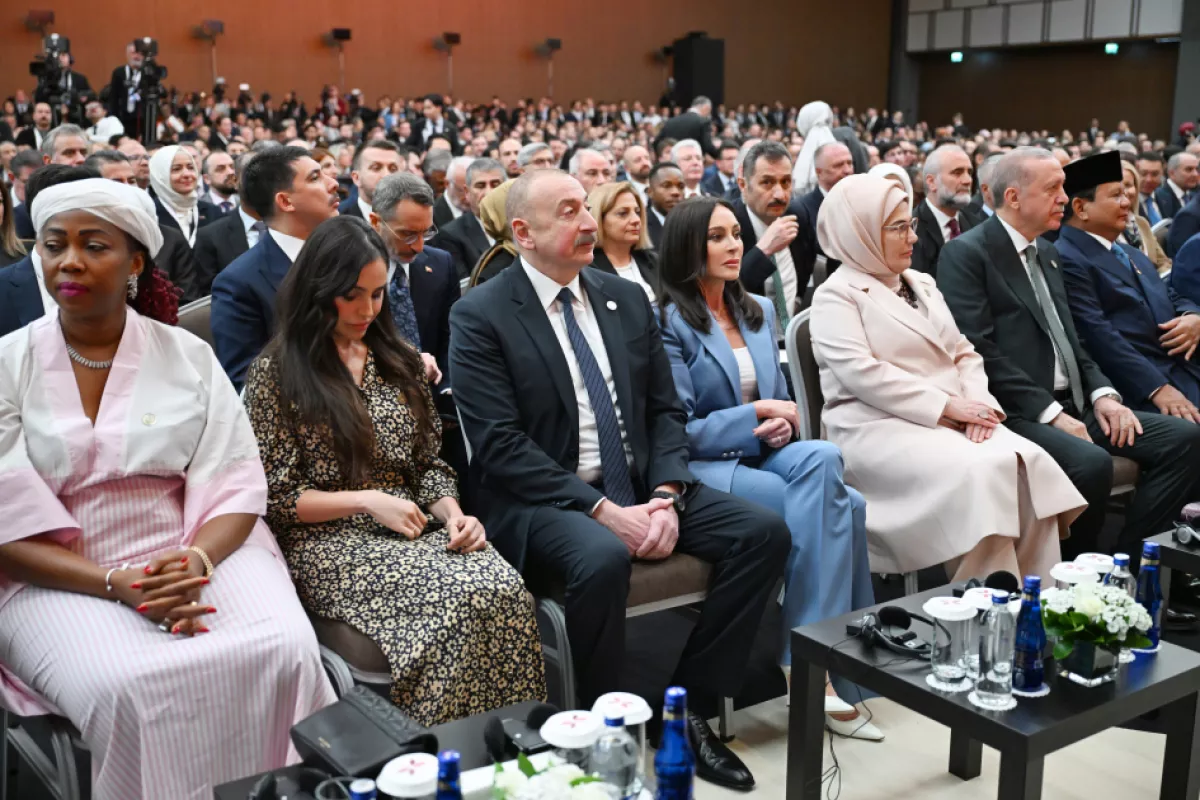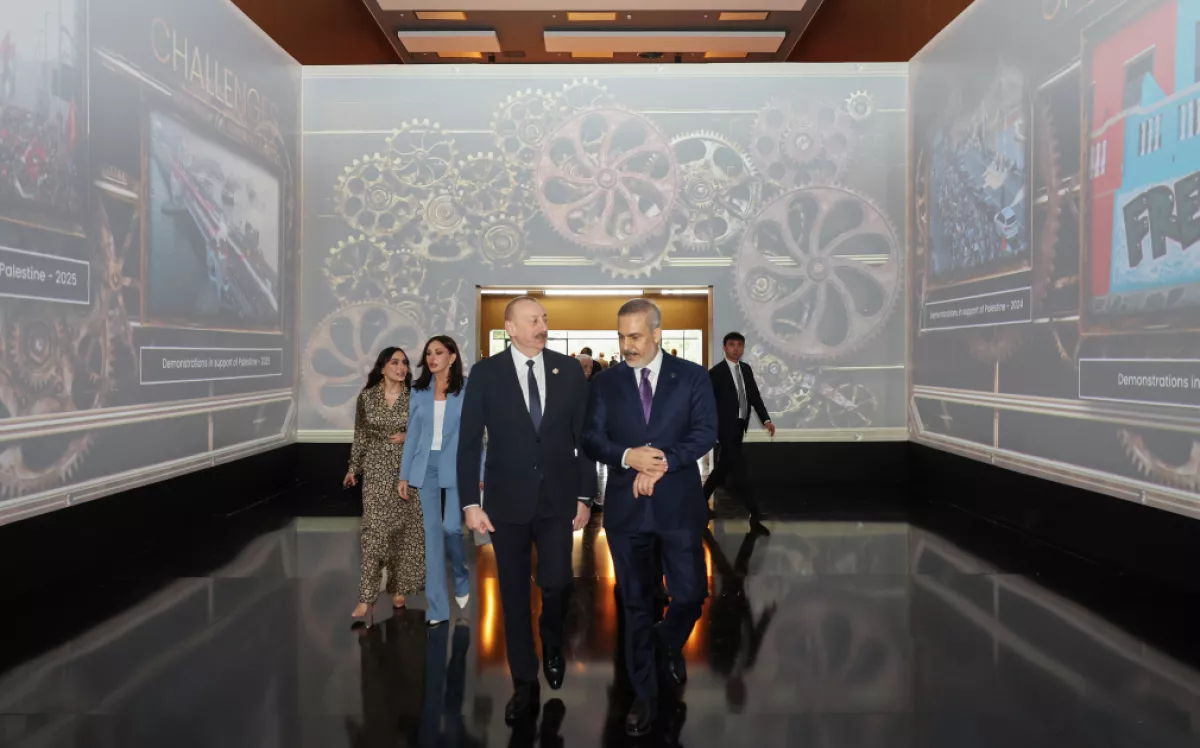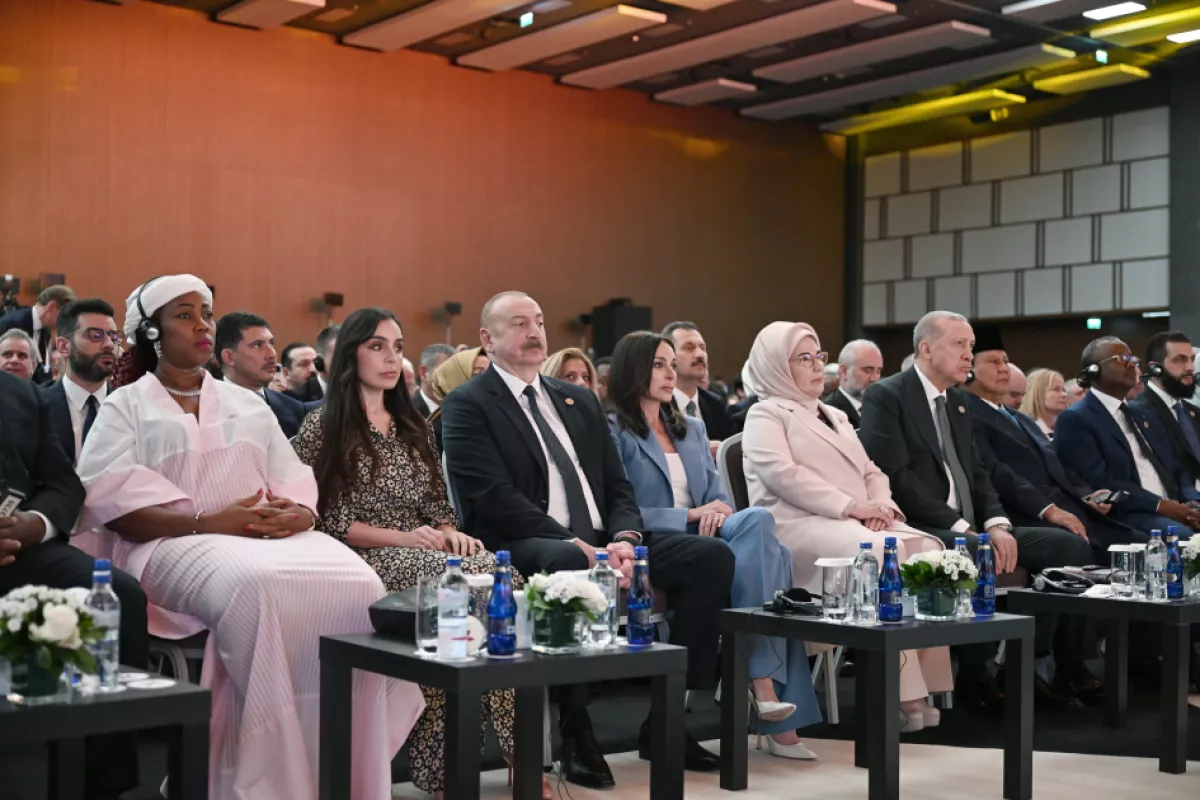World leaders gather to tackle global challenges at Türkiye’s Antalya Diplomacy Forum PHOTO / VIDEO / UPDATE
The Antalya Diplomacy Forum officially opened in Antalya, Türkiye on April 11, with Azerbaijan's President Ilham Aliyev and First Lady Mehriban Aliyeva attending the ceremony.
The event began with a welcoming address by Turkish Foreign Minister Hakan Fidan, who highlighted the significance of the Forum and acknowledged the attendance of numerous distinguished guests.
Following this, Turkish President Recep Tayyip Erdoğan took the stage to deliver a speech, stressing the importance of tackling current global challenges and underscoring the Forum’s role in facilitating such discussions.
The Antalya Diplomacy Forum, recognized as one of the world’s leading platforms for dialogue on global challenges and solutions, brings together nearly 450 high-level representatives from 140 countries. The event includes the participation of over 20 heads of state and government, as well as more than 70 ministers.
Throughout the Forum, more than 50 sessions in various formats will cover a wide array of topics, including global security threats, regional challenges from the Middle East to the Asia-Pacific, and pressing issues such as climate change, food security, digitalization, and artificial intelligence.
16:39
The Antalya Diplomacy Forum kicks off in the vibrant city of Antalya, Türkiye, with the President of Azerbaijan, Ilham Aliyev, and First Lady Mehriban Aliyeva in attendance, marking the event with their presence.
The forum has drawn over 4,000 participants from more than 140 countries, including over 20 heads of state and government, underscoring the international significance of this gathering, Caliber.Az reports via local media.
In addition to the political leaders, the forum also hosts representatives from approximately 60 high-level international organisations, contributing to the broad scope and influence of the discussions. The event promises to foster dialogue and collaboration on key global challenges.
Over the course of the three days, more than 50 sessions will be held, focusing on vital topics that are shaping the future of the world. These include climate change, the fight against terrorism, humanitarian aid, digitalisation, food security, and artificial intelligence.
This year’s theme “Reclaiming Diplomacy in a Fragmented World” reflects the pressing need for diplomacy to reassert itself as a stabilizing force, amid rising global divisions.
Growing geopolitical rifts, deepening global inequalities, surge in violence targeting civilians, intolerance towards divergent views, uncertainties driven by technological disruptions and multidimensional impact of climate crisis have all shaken common sense of justice and eroded trust in international institutions.
The inability of the current international system to find solutions to these contemporary challenges has further strained the already struggling cooperation efforts. In an era of heightened instability and unpredictability, marked by complex challenges and multiple crises, the Antalya Diplomacy Forum aims to evaluate the systemic problems of the multilateral order and foster dialogue on reclaiming diplomacy in a rapidly evolving international environment.
The Antalya Diplomacy Forum gathers global leaders, policymakers, academics, business experts and as well as representatives of media and civil society to explore how diplomacy can turn the tide and navigate us through a fragmented world to find a common ground for collective action. The Forum aims to inspire dialogue to redefine the role and core principles of diplomacy in an increasingly polarized atmosphere.
By discussing root causes of various problems, the Forum encourages policymakers to reconsider how diplomacy can manage these turbulent times, with a focus on innovative tools for conflict resolution, mediation strategies and regional cooperation mechanisms. To help create a more effective and cohesive international system, the Forum looks for new solutions to address the failures of global governance, by examining the dysfunction and lack of trust in international organisations.
The role of non-governmental stakeholders complementing traditional diplomatic efforts is also elaborated to discover how diplomacy can become more inclusive, adaptable and resilient. The Forum provides a forward-thinking platform for participants from all around the world to work on joint strategies to make diplomacy the driving force for peace and cooperation.
By Naila Huseynova




